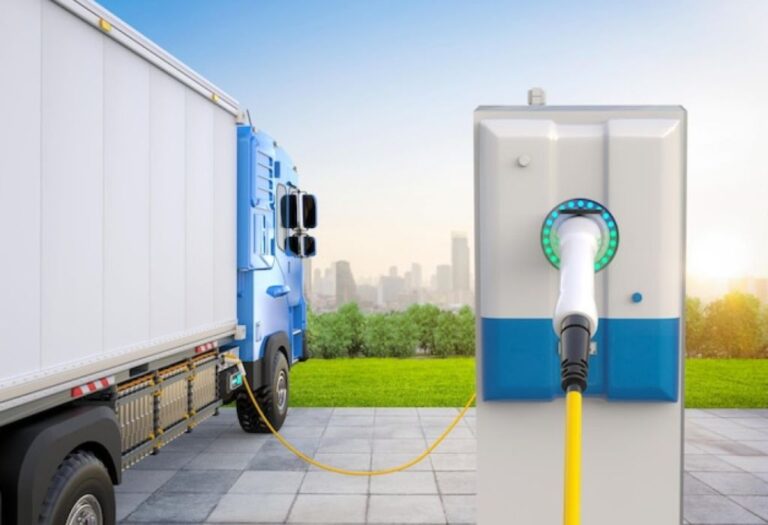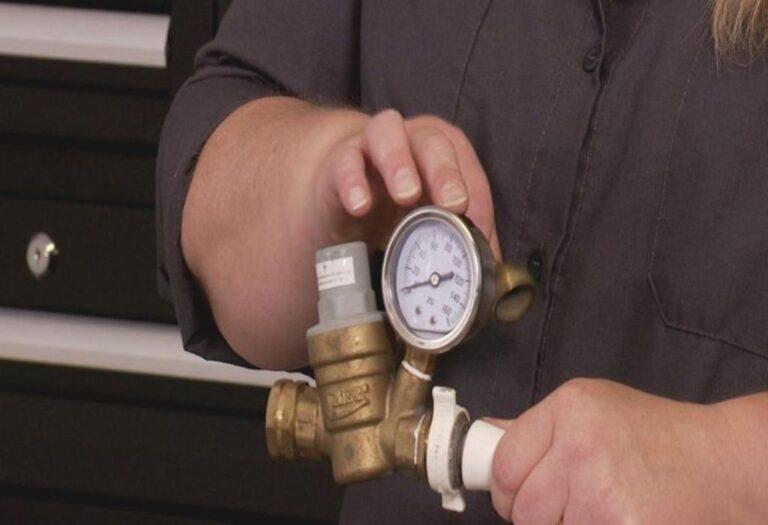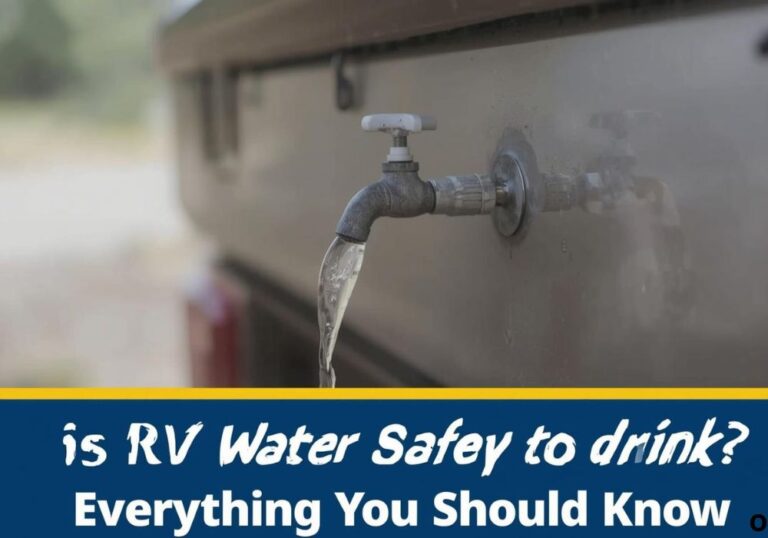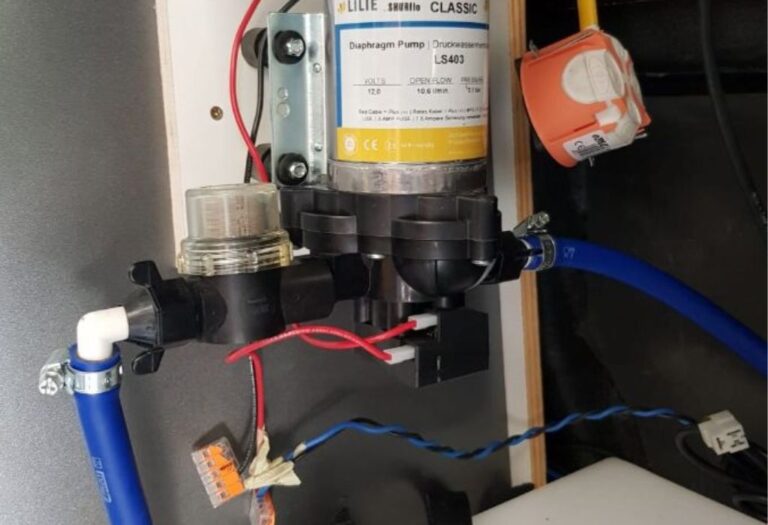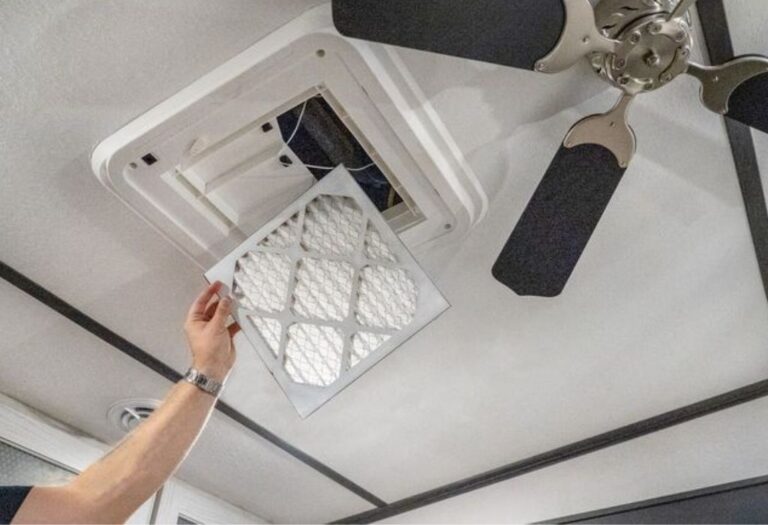Does an RV Battery Charge When Being Towed? Complete Guide
An RV owner hooks up the trailer, starts the tow vehicle, and heads down the highway believing the battery will recharge during the trip.
Hours later, they arrive at the campsite only to find the RV battery still drained.
The question arises: does an RV battery charge when being towed, or is this a common misconception among travelers.
Many first-time RVers assume towing automatically restores battery power.
In reality, charging depends on the vehicle’s wiring and the connection between the alternator and the RV battery.
Without the proper setup, towing alone may not provide any charge.
RV batteries power lights, refrigerators, water pumps, and entertainment systems. A drained battery can turn a comfortable trip into an inconvenient experience.
The Recreational Vehicle Industry Association reports that more than 11 million U.S. households own RVs, making battery charging a widespread concern for campers and road trippers (RVIA).
According to the U.S. Department of Energy, deep-cycle lead-acid RV batteries last about 3 to 5 years on average, but improper charging habits shorten their lifespan significantly (Energy.gov).
These statistics show why understanding charging methods is crucial for RV owners. Properly charging batteries during travel extends their life and prevents costly replacements.
Some RVs are wired to charge through a 7-pin connector, while others require modifications. Alternator size, wiring quality, and power demands also affect charging efficiency.
This guide explores when RV batteries charge during towing, what equipment is necessary, common problems, and expert tips for maximizing efficiency.
By the end, you will know exactly how to keep your RV battery charged on the road.
Does an RV Battery Charge When Being Towed?
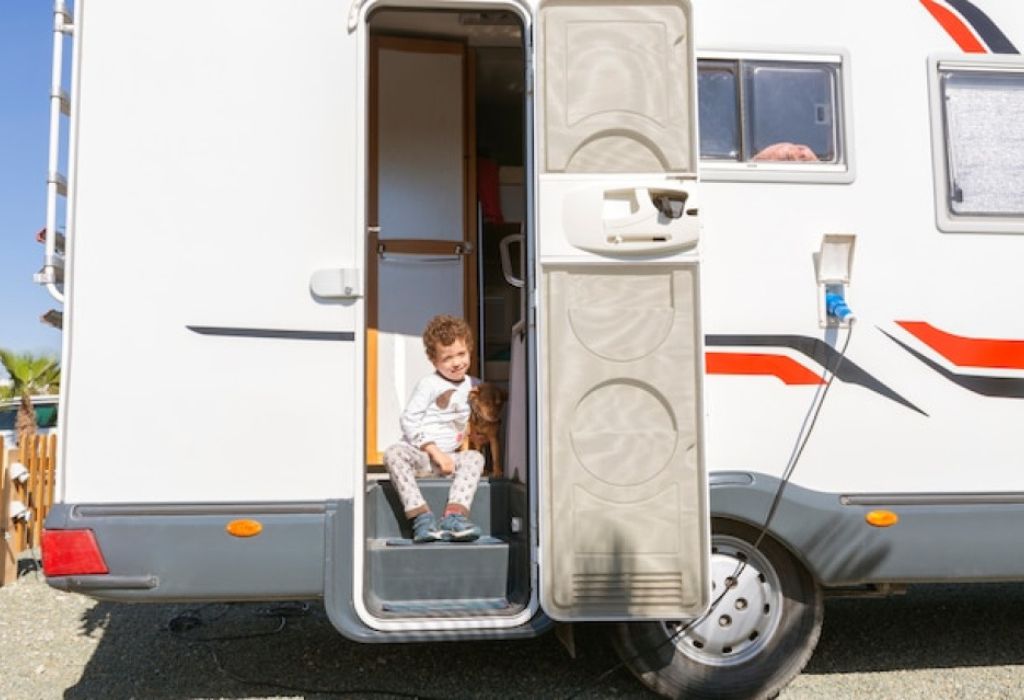
Yes, an RV battery can charge while being towed, but only if the tow vehicle is properly wired. Most setups require a 7-pin connector that links the alternator to the RV battery.
Without this connection, the battery will not charge during travel. Even with the right setup, the charge provided is often more of a maintenance charge than a full recharge.
Does an RV battery charge when being towed?
Yes, if the tow wiring supports it.
Do all RVs charge automatically?
No, some require modifications.
Does the alternator power the RV battery?
Yes, through the 7-pin connector.
Can towing fully recharge a dead battery?
No, it only maintains charge.
How the Charging System Works
The tow vehicle’s alternator generates electricity whenever the engine is running. Part of this electricity can be sent through the 7-pin connector to charge the RV battery.
This system works by providing a trickle of power while driving. Fuses and relays protect both the vehicle and RV from electrical overload.
What role does the alternator play?
It provides charging power while driving.
What is a 7-pin connector?
A plug that connects the vehicle to the RV.
Are fuses necessary?
Yes, they prevent electrical damage.
Is charging constant while towing?
Yes, but the rate is usually low.
Factors That Affect Charging Efficiency
Wire length plays a major role in charging efficiency. Longer wires cause voltage drop, which reduces the amount of power reaching the RV battery.
The health of the RV battery also affects charging. Older or sulfated batteries charge less efficiently and may not hold a charge well.
Appliances running inside the RV during travel can drain the battery faster than the alternator can recharge it. Alternator capacity in smaller tow vehicles may also limit charging power.
Does wire length matter?
Yes, it causes voltage drop.
Can appliances drain the battery while towing?
Yes, they may consume more power than provided.
Does alternator size affect charging?
Yes, stronger alternators supply more power.
Does battery health matter?
Yes, weak batteries charge poorly.
Common Problems With Charging While Towing
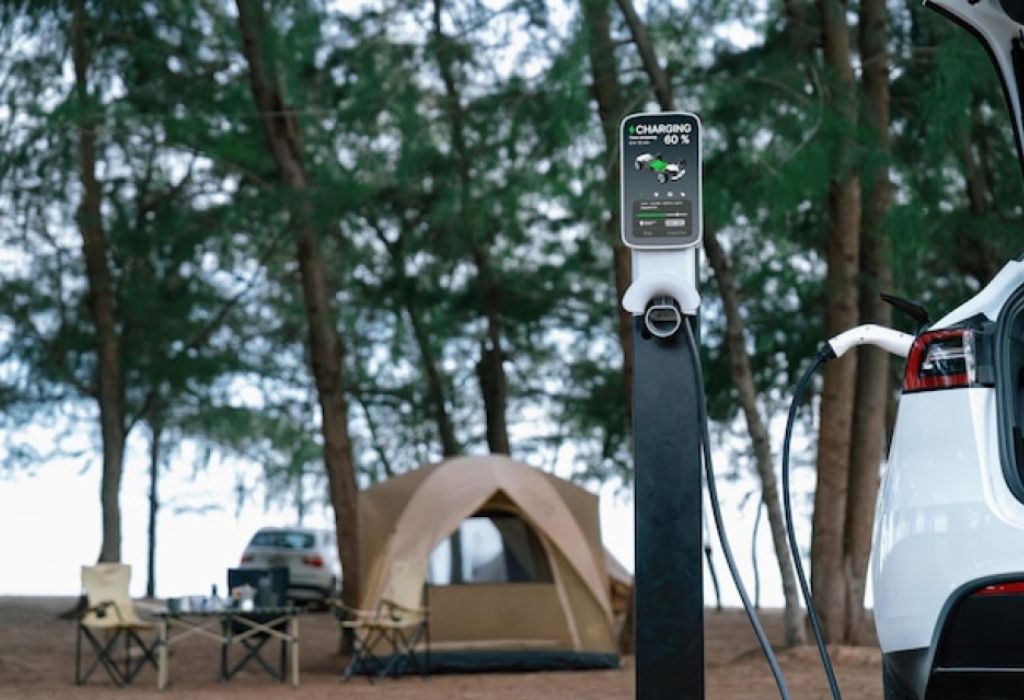
Corroded or dirty connections in the 7-pin plug are a common issue. They block current flow and prevent charging.
Blown fuses or faulty relays can also stop the system from working. Incorrect wiring from the factory or during trailer setup is another frequent cause of charging problems.
Some smaller vehicles have alternators that are too weak to handle both the car and the RV’s battery. This results in very slow charging or none at all.
Why isn’t my RV battery charging while towing?
Connections or wiring may be faulty.
Can corrosion stop charging?
Yes, it blocks the current flow.
What if the fuse is blown?
Replace it to restore charging.
Can small vehicles handle charging?
Not always, weak alternators may struggle.
How to Maximize Battery Charging While Towing
Keeping connectors clean and free of corrosion ensures consistent charging. Regular inspections prevent issues from developing unnoticed.
Upgrading to heavy-gauge wiring reduces voltage drop, allowing more current to reach the battery. Adding a battery isolator protects the tow vehicle’s starting battery from being drained.
A DC-to-DC charger is one of the best upgrades for RV charging while towing. It boosts voltage and ensures the RV battery receives a proper charge.
Should I upgrade wiring?
Yes, it reduces power loss.
Is a DC-to-DC charger useful?
Yes, it improves charging efficiency.
Should I disconnect RV appliances?
Yes, it allows more power to charge the battery.
Do isolators help?
Yes, they protect the vehicle battery.
Alternatives to Towing-Based Charging
Solar panels mounted on the RV roof provide charging even while driving. They reduce strain on the alternator and keep batteries topped up.
Portable battery chargers are useful at campgrounds with shore power. Generators provide a faster recharge option when off-grid.
Many RV owners combine solar with towing-based charging for maximum efficiency. This hybrid approach ensures the battery is always ready.
Can solar charge while towing?
Yes, if panels are installed.
Are generators practical on the road?
Not while towing, but great at camp.
Is shore power better than towing charge?
Yes, it charges faster and more reliably.
Do portable chargers work?
Yes, they top up batteries easily.
Expert Tips for Extending RV Battery Life
Avoid letting batteries discharge below 50% to preserve lifespan. Deep discharges shorten battery health and reduce capacity over time.
Recharge batteries fully after each trip. Storing them with a trickle charger in winter prevents sulfation.
Upgrading to lithium batteries provides longer life and faster charging. Solar setups also help extend battery life by keeping power levels stable.
Does deep discharge damage batteries?
Yes, it shortens lifespan.
Should I trickle charge in storage?
Yes, to prevent sulfation.
Are lithium batteries better?
Yes, they last longer and charge faster.
Do solar setups extend battery life?
Yes, they maintain charge consistently.
Market Trends in RV Battery Charging
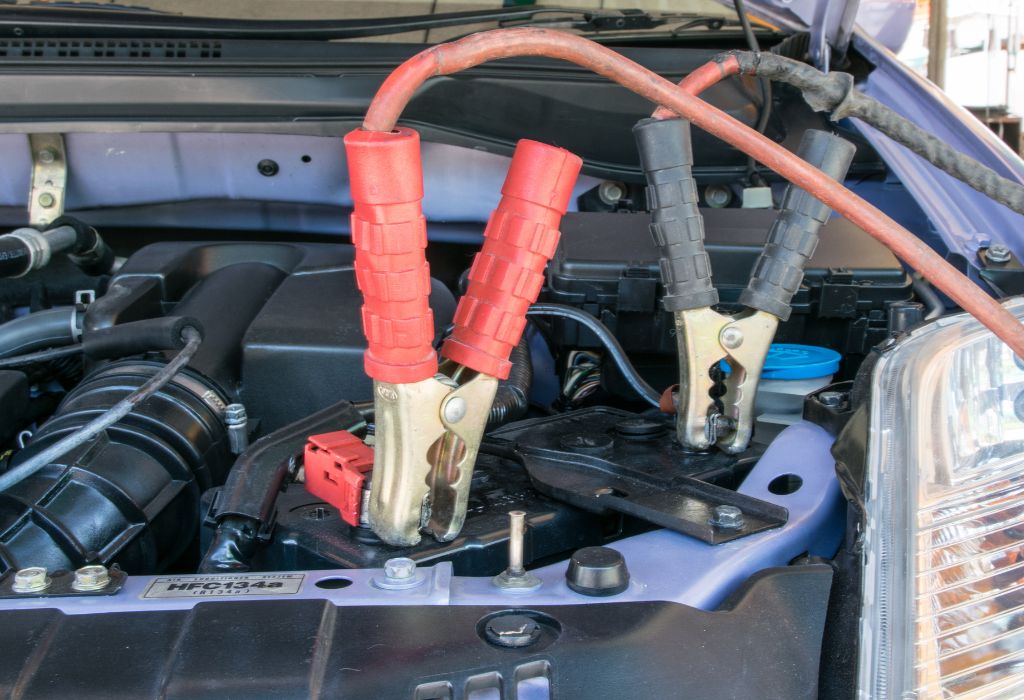
DC-to-DC chargers are becoming increasingly popular among RV owners. They ensure reliable charging even with long wiring runs.
Lithium batteries are replacing lead-acid models due to better performance. More manufacturers are offering RVs with solar-ready systems.
Tow vehicles are also being designed with improved alternator systems to handle RV charging. These upgrades reflect the growing demand for better power management in mobile living.
Are DC-to-DC chargers common?
Yes, they are widely adopted.
Is lithium replacing lead-acid?
Yes, for longer performance.
Are RVs coming with solar pre-installed?
Yes, many include solar prep.
Are alternators improving?
Yes, newer vehicles support more charging.
Conclusion
The answer to does an RV battery charge when being towed is yes, but only under the right conditions. A proper 7-pin connector and correct wiring are required.
Towing provides a maintenance charge rather than a full recharge. Efficiency depends on alternator strength, wiring quality, and battery health.
Adding a DC-to-DC charger, solar panels, or shore power ensures consistent charging. With the right setup, your RV battery will stay powered and ready for every adventure.
I’m David R. Coleman, the founder, lead writer, and lifelong tool enthusiast behind GarageToolPro.com. With years of experience in automotive repair, woodworking, and home DIY projects, I created this platform to share practical tips, detailed tool reviews, and step-by-step guides that help mechanics, hobbyists, and homeowners get the job done right the first time.

